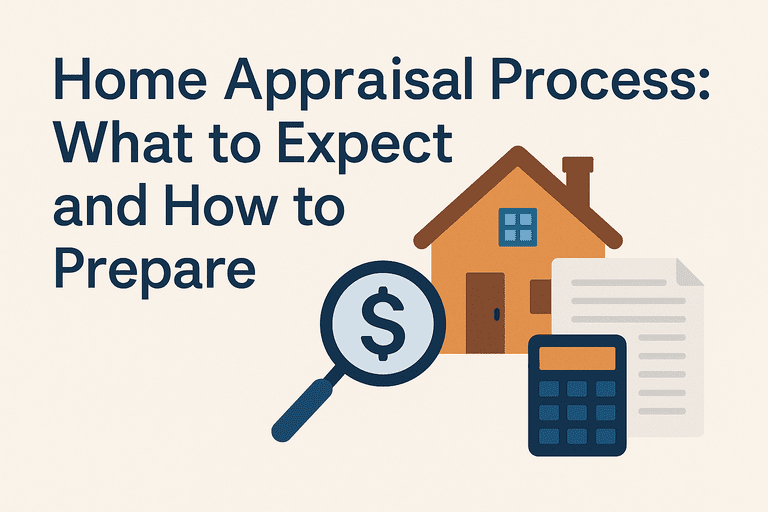Buying or selling a home involves many financial steps, and one crucial part of the journey is the home appraisal. Understanding how property valuation works and preparing for the process can help ensure your mortgage application moves smoothly and prevents surprises during closing.
What Is a Home Appraisal?
A home appraisal is a professional assessment of a property’s market value. Lenders require appraisals to confirm that the home’s worth aligns with the mortgage amount. Appraisals protect both buyers and lenders, ensuring that loans are based on accurate property valuations.
Why Home Appraisals Matter:
Protects the lender by preventing over-lending
Helps buyers make informed purchase decisions
Can influence loan approval, down payment, or interest rate
How Property Valuation Works
Professional appraisers use several methods to determine the market value of a home:
Comparative Market Analysis (CMA): Examines recent sales of similar homes in the neighborhood.
Cost Approach: Estimates how much it would cost to rebuild the home from scratch, factoring in depreciation.
Income Approach (for investment properties): Calculates value based on potential rental income.
By combining these approaches, appraisers provide a comprehensive valuation that reflects current market conditions.
Steps in the Home Appraisal Process
Understanding the process helps homeowners and buyers prepare for the appraisal:
1. Scheduling the Appraisal
Lenders order the appraisal once the loan application is in progress. Timing is crucial to avoid delays in closing.
2. Preparing the Property
Presenting the home well can positively impact the appraisal:
Clean and declutter all areas
Make minor repairs (leaky faucets, broken tiles)
Ensure landscaping is tidy
Provide a list of recent upgrades or renovations
3. Conducting the Appraisal
Appraisers will:
Inspect the interior and exterior
Measure square footage and property layout
Take photographs for documentation
Compare the property to similar nearby homes
4. Reviewing the Appraisal Report
The lender receives a detailed report outlining the home’s value. If the appraised value is lower than the purchase price, buyers may need to:
Increase their down payment
Negotiate a lower price
Request a reconsideration of value with additional comparables
Mortgage Appraisal Tips for Homeowners and Buyers
Boost Curb Appeal: First impressions matter. Simple landscaping and exterior maintenance can improve value perception.
Highlight Improvements: Share receipts or documentation for upgrades like kitchen remodels or energy-efficient systems.
Maintain Cleanliness: A neat, clutter-free interior ensures appraisers see the property at its best.
Provide Access: Make all areas accessible, including attics, basements, and garages.
Research Comparable Homes: Understand local sales trends and be ready to discuss them if necessary.
Common Appraisal Challenges
Even with preparation, challenges can arise:
Market Fluctuations: Sudden changes in real estate prices can affect appraised values.
Unique Properties: Homes with rare features may not have enough comparable sales, complicating valuation.
Incomplete Information: Missing upgrades or renovations can lower perceived value.
Proactively addressing these issues can reduce delays and disputes.
Benefits of a Smooth Appraisal Process
Faster mortgage approval and closing
Increased confidence in property investment
Potential for better loan terms if value exceeds expectations
A well-prepared home and informed buyer significantly reduce appraisal-related stress.
Conclusion: Preparing for a Successful Home Appraisal
The home appraisal process is a critical step in buying or refinancing a property. By understanding property valuation methods and following mortgage appraisal tips, homeowners and buyers can improve outcomes, avoid surprises, and facilitate a smooth transaction. Being proactive and prepared ensures that the appraisal accurately reflects the true value of the home, protecting both parties in the mortgage agreement.
For more tools and resources, visit CalculatingAMortgageLoan.com.
Sources:
